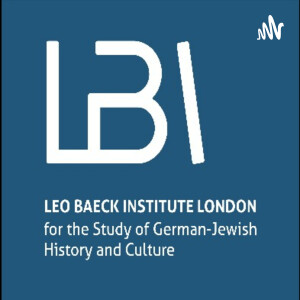
Prof Dani Kranz
Germany is home to Europe’s third largest Jewish community. Yet surprisingly little is known about them. After the Shoah, about 15,000 German Jews returned to Germany or emerged from hiding. The growth of the Jewish population in Germany after 1945 was due entirely to immigration, which is somewhat counter intuitive. Who are the Jews who live in contemporary Germany? How do they live out their Jewishness? What Jewish cultures did they bring with them, and what kind of Jewish culture is forming in Germany?
Dani Kranz is the incumbent DAAD Humboldt chair at El Colegio de México, Mexico City, and an applied anthropologist and director of Two Foxes Consulting, Germany and Israel. Her expertise covers migration, integration, ethnicity, law, state/stateliness, political life, organisations, memory cultures and politics as well as cultural heritage.
This season’s lecture series Outsiders in German-Jewish History seeks to uncover the shared experiences of individuals and communities who found themselves on the margins of society. Transcending both time and geography, talks will offer different perspectives on the resilience and tenacity of those who have grappled with the challenges of being outsiders. How have they found identity and a sense of belonging in societies that have not understood or even accepted them?
Organised by the Leo Baeck Institute London in cooperation with the German Historical Institute London and the British-German Association (BGA).
Lecture recorded at Senate House, University of London on June 13, 2024
Images from the lecture, and other streaming links, are available on the Leo Baeck Institute London website: https://www.leobaeck.co.uk/kranz-24
#JewishLife #ContemporaryGermany#LectureSeries2024 #JewishCommunity#ProfDaniKranz #JewishCulture #JewishHeritage#Migration #Integration #CulturalAnthropology#DAADHumboldtChair #ElColegiodeMéxico #GermanyIsrael#LeoBaeckInstitute #HistoricalLecture
More Episodes
 2024-07-08
2024-07-08
 2023-05-05
2023-05-05
 2023-01-01
2023-01-01
Create your
podcast in
minutes
- Full-featured podcast site
- Unlimited storage and bandwidth
- Comprehensive podcast stats
- Distribute to Apple Podcasts, Spotify, and more
- Make money with your podcast
It is Free
- Privacy Policy
- Cookie Policy
- Terms of Use
- Consent Preferences
- Copyright © 2015-2024 Podbean.com






